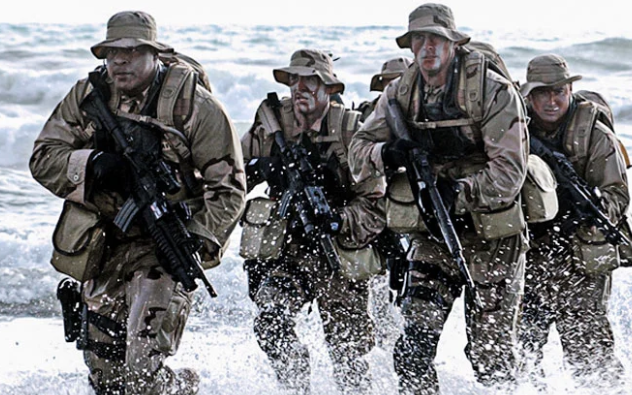The United States Navy SEALs, renowned as one of the most distinguished and elite special forces units in the U.S. armed forces, are set to initiate sporadic checks for substances that enhance performance, commonly referred to as P.E.D.s, in the coming months. Rear Admiral Keith Davids, who commands the Naval Special Warfare Command, has emphasized that this drug testing initiative is aimed at safeguarding the well-being of servicemen and women while also ensuring the readiness of our military forces.
This declaration follows an interval of over a year since the unfortunate demise of a 24-year-old sailor named Kyle Mullen, who suffered cardiac arrest shortly after completing the arduous segment of SEAL training known as “Hell Week.”
Post-mortem examinations revealed the absence of performance-enhancing substances in his system, yet reports suggest that he was not subjected to screenings for specific steroids due to the unavailability of required urine and blood samples. Subsequently, a variety of drugs, such as testosterone and human growth hormone (HGH), were discovered in the sailor’s vehicle following his passing.
The program, identified as Basic Underwater Demolition/SEAL training (BUD/S), is renowned for its rigorous nature and is considered one of the most demanding training programs in the U.S. armed forces. Since 1953, a minimum of 11 individuals have lost their lives while participating in this training.
According to Navy command, a new protocol will involve the random selection of four units each month, with approximately 15% of the personnel in each unit, totaling around 200 sailors monthly, undergoing testing. In the event of a positive test result, the implicated sailor will be subject to disciplinary measures, including the possibility of being discharged from service.
Senior officials in the Navy express deep apprehension regarding the prevalence of performance-enhancing drugs in the military. They emphasize that if steroids become commonplace among trainees, there is a distinct risk that only those who resort to illicit drug use will successfully complete their training, surpassing individuals who adhere to the established regulations.
One Navy leader articulated his reluctance to lead individuals of such character during wartime scenarios. Even if he himself possesses the physical prowess to excel in the demanding assessments, he harbors reservations about entrusting these individuals to make morally sound decisions due to their unethical choices regarding performance-enhancing substances.








